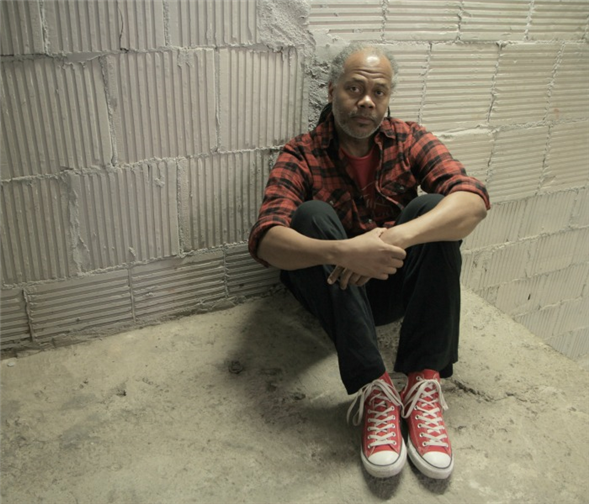Translate Page

Danspace Project's Platform 2018 touches on race, religion, and NYC history
---
How do you frame new work in dance and link it to larger cultural concerns? That's what groundbreaking presenter Danspace Project set out to do with its innovative Platforms series, which launched in 2010. Each installment has a distinctive focus and emphasizes connections between thematically related offerings (dance, yes, but so much more) over a multi-week period.
"I conceived of them as exhibitions that unfold over time," explains Judy Hussie-Taylor, Danspace's executive director and chief curator. "Consistent elements are a guest artist curator, a print catalogue, a guest editor, and multiple weeks of activities."
Platform 2018, which starts this week, is curated by veteran performer and choreographer Reggie Wilson. Titled Dancing Platform Praying Grounds: Blackness, Churches, and Downtown Dance, it encompasses an array of events during which choreographers, performers, writers, and scholars respond to Wilson's questions about race, religion, dance, and the history of Danspace's St. Mark's Church in-the-Bowery home.
While Hussie-Taylor has known Wilson since the mid-'90s, she asked him to curate a Platform after seeing him stage one of his pieces in chapel on Governors Island in 2014. "I have been interested in Reggie's work and process as a kind of choreographer-anthropologist since we met," she says. "Every chapter of his research has been fascinating to me."
Although Wilson was busy with his own company, the Fist & Heel Performance Group, and wasn't looking for this kind of assignment, he decided to give it a try because he was drawn to "how the Platforms were reshaping and recontextualizing the audience's relationship to dance," he says. "I think even more than with festivals, the work is experienced in conversation with other work and other ideas in a really deep way that I don't think usually happens."
Platform 2018 kicks off with a free opening night reception in the Great Hall at Cooper Union on February 28, and continues at various venues through March 24 with weekly dance performances and walking tours, and a symposium on March 10.
For Platform 2018, Danspace commissioned a report by Prithi Kanakamedala, Ph.D. about the history of slaveholding in Manhattan, the development of free black communities during the period leading up to the construction of St. Mark's Church in 1799, and the possible existence of slave galleries in neighborhood structures of the era. The first Platform 2018 dance program, The Dossier Charrette: a series of working dance essays (March 8-10), consists of 10-minute artistic responses to that research, followed by discussions among Wilson, the artists, and the audience. "These are artists whose methodology of working I'm interested in -- how they get to what they get to," says Wilson about the participants he selected for this event. "What are they going to do with the subject matter?"
{Image1}
For the second dance program (March 15-17), Wilson invited artists Keely Garfield, Same As Sister/Briana Brown-Tipley and Hilary Brown, and Ni'Ja Whitson to share new work in reaction to the themes. For the closing week, Wilson's Fist & Heel Performance Group will present the world premiere of ...they stood shaking while others began to shout, which touches on many of the choreographer's historical and anthropological interests, including the existence of the little-known Black Shakers. "Uncovering that kind of un-thought-about, unheard-about history, and trying to imagine what that kind of worship might have looked like, is where the kinesthetic research is going into," Wilson says.
As Wilson talks about the wide-ranging work that has inspired the programming of his Platform, it becomes evident why the title must be a mouthful. "We kept thinking of trying to shorten it, but it felt good to have all those ideas in there, so that they were up-front and not hidden," Wilson says. "The first part of the title is a little bit poetic and evocative. But the blackness part is not just about being black, but about black bodies. Blackness was a trigger for the choreographers to think about race. And churches wasn't just to think about this church, but the whole idea of religious-affiliated spaces. There are a lot of them in New York that have been instrumental to modern and contemporary and experimental dance."
---
Susan Reiter regularly covers dance for TDF Stages.
Top image: Reggie Wilson. Photo by Aitor Mendilibar.
TDF Members: Go here to browse our latest discounts for dance, theatre, and concerts.